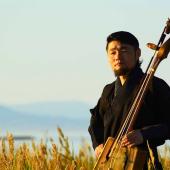Music History
Hardly any music is connected with its culture and values like the traditional African music. Despite Arabization, colonization and the influence of different regions, this music is tradition and gets protected until today. It consists of more than sounds or drum beats, it is the language of an entire continent.
The traditional African music comes from the sub-Saharan African countries. As traditional is referred to in this context, the music that was not or only slightly influenced by regional musical styles. Since the European colonial period it has remained faithful to its historical roots. The basic African music has evolved steadily through the cultural exchange of the regions and through the developments in the countries. The sound of sub-Saharan Africa has primarily social functions, as well as the African dance. Both reflect changes in society and of each individual. The traditional African music is a cultural heritage that gets conserved by the black African population.
Through historical and cultural influences, the music of Black Africa underlays continuous developments. A variety of styles sounds different from region to region. The African music is based on very poetic lyrics, which are also found in African dance. In many African languages the same word is used for music and dance.
Most African languages are so-called tonal languages. The tones are closely linked to the melodic structure. An equally close relationship also exist with the music - within the drum language. With it voice messages are disseminated on the drum. The key is to distinguish the meanings oriented by the pitch level - the pattern. In the form of a rhythmically recurring structure.
The traditional African music states a cultural heritage. It imparts values and it is an expression of the desire for freedom. Historical factors such as the Arabization during the African Middle Ages, the colonization by the Western states and slavery have left its mark not only in the country where it happened. It also had a strong influence on African-American music. Here we find the structure of the drum language in the form of a question and answer motive. It also had one central desire: the demand for freedom.




